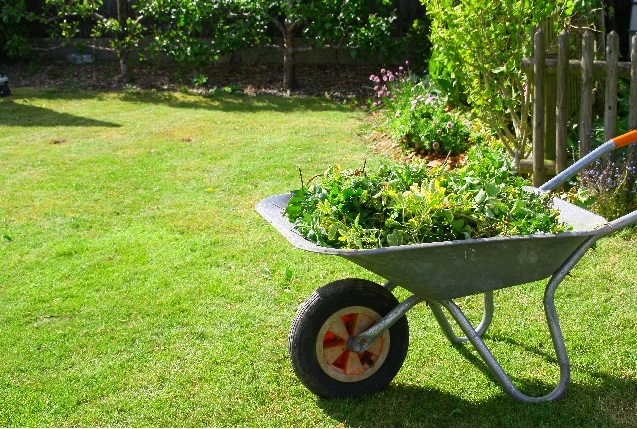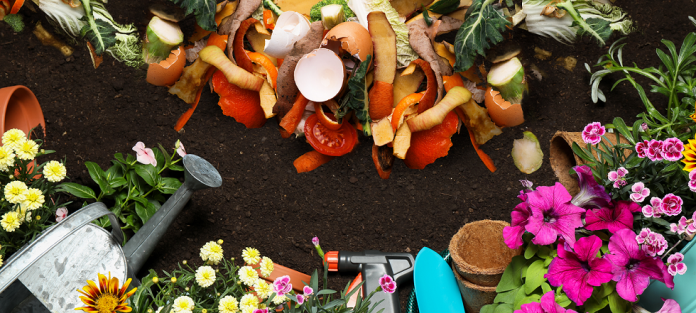Besides keeping the home’s interior neat and tidy, part of a homeowner’s responsibility is maintaining a beautiful front and back yard. In fact, beyond the benefits to the home’s outdoor aesthetics, some property owners spend considerable time in the garden to improve their physical and mental health.
Composed predominantly of organic material and living organisms, the garden produces a huge volume of wastes—from leaves and bushes to grasses, twigs, and kitchen wastes. Fortunately, garden waste is mostly biodegradable.
Take a look at the tips below for hassle-free garden waste management:
- Hire A Rubbish Removal Service
A homeowner should try to reduce garden leftovers as much as possible. But if there are some items that you can’t repurpose or upcycle—for instance, a junk car—it’s best to call a third-party rubbish removal collector near your area. Look for a reputable company that offers value-for-money service that’s fast and efficient. You don’t have to spend a fortune to get top-notch service, according to Same-Day Rubbish Removal.
Don’t let unsightly litter sit in your yard for long. Look for a removal company that will do the job for you as soon as possible.
- Make Your Own Compost
Since you’re dealing with biological wastes, you can make compost out of your garden debris such as fruit and vegetable peels, grass, weeds, and any other plant leftovers.
It doesn’t require a genius to start a compost pit. Just pile the garden waste and mix it with the soil. Wait until the waste decomposes for about a month or two before using it on your garden bed. If you’re still unsure, you can always refer to this handy guide in making compost out of garden waste.
Apart from reducing waste, a compost pit will help your garden soil retain its nutrients, so you don’t need to buy chemically laden fertilizers

- Plan Your Garden Design Better
Avoid garden debris from accumulating by performing regular garden clean-ups. Doing so can reduce your yard clearing time and the volume of waste generated by your lawn.
Certain plant, grass, and tree species generate less waste than others. Consider these differences between plants when designing the garden of your dreams. Balance aesthetics and practicality in planning what to plant and cultivate on your lawn.
- Avoid Using Chemicals
It can be challenging to control the growth of unwanted plants and weeds without the use of chemicals. But it’s not impossible. Check online resources for do-it-yourself organic weedkillers. Apart from saving a few dollars, you’ll also reduce air pollution and health risks by preventing the release of noxious chemicals into the air.
Besides, chemicals are often packaged in non-recyclable cans which can further add to the waste that you need to get rid of.
- Reuse And Recycle
Reusing and upcycling are two of the main methods used in reducing the volume of debris. Proper waste management dictates that you separate biodegradable, non-biodegradable, and recyclable items. Plastic wastes, for instance, can be repurposed. If you can’t use all of them, drive down to the nearest recycling plant and sell or donate them.
Metal wastes, such as broken aluminum, stainless steel, iron, and copper can all be converted into beautiful works of art. You can also make money by offering them to junk recyclers.
- Change Your Buying Habits
Often, garden companies sell products such as sand and soil in bulk. However, you most likely often end up using only half of this.
To work around wasting this much gardening products, try to look for neighbors who may be in need of the same materials so that you don’t have to throw away excess stuff. To take your love for the earth even further, avoid buying from companies that sell products in plastic packaging.
- Invest In Long-Lasting Tools
Gardening tools can be pricey. No wonder it’s tempting for some buyers to look for the cheapest option on the market. Besides, what do you need an expensive tool for? At face value, it may be counterintuitive to invest in durable products. But, by spending a few more dollars, you can actually save on buying a new one a few months after your purchase. What’s more, you won’t be stuck with a detached rake or busted shovel that you no longer have use for.
- Look For Organizations That Accept Garden Waste
Check out the guidelines set by your homeowners’ association about proper waste management. Some eco-friendly communities, for instance, have designated garden waste disposal areas. Check the specific types of waste accepted by the community.
Although rare, some organizations even accept household wastes. They may have more stringent rules compared to your community, though.
The Bottom Line
Waste reduction, repurposing, and recycling are the three main strategies in managing garden waste properly. As a homeowner, you need to avoid plastics and non-recyclable items when you’re sprucing up your yard.
If you’re not confident in doing any of these on your own, look for waste removal companies and organizations that can help you out.










